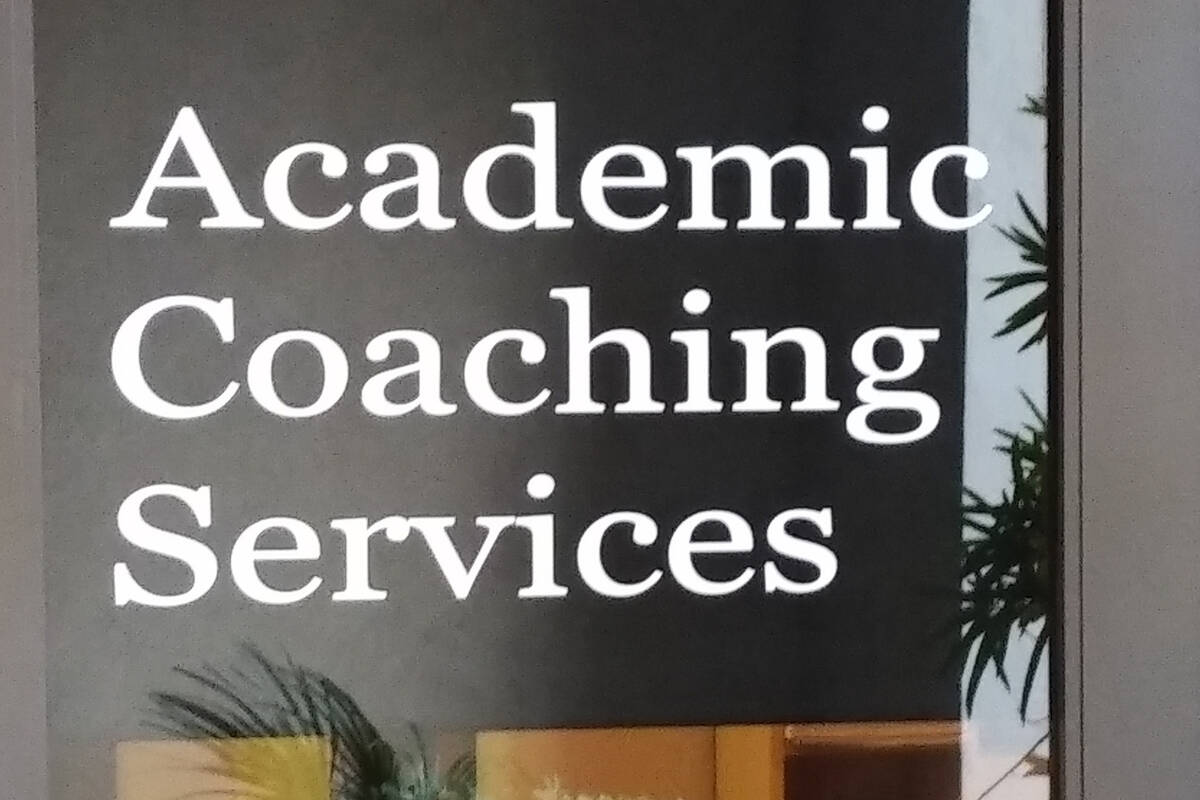‘An extra step up’: Foundation helps prepare CCSD students for college

Mateo Flores has big dreams for his future, and the Academic Coaching Services Foundation is helping him reach his goals.
The ACS Foundation works to provide academic and college preparation to low- and middle-class Nevadans seeking to apply to prestigious universities or programs. Standardized test prep and advanced placement tutoring are just two pillars of the nonprofit.
William Coakley founded the program in 1996, with the intention to send more Nevada students on to higher education. Coakley, or Mr. C, is also the executive director and one of the instructors.
After graduating from Harvard, Coakley returned to Nevada to teach, but students asked why he would come back if he graduated from an Ivy League school. That question was one of his key motivators for founding the nonprofit.
Flores, 17 and a senior at the Basic Academy of International Studies, got involved near the beginning of his sophomore year when he realized he wanted to apply to elite schools, but wasn’t finding the resources he needed on his own.
“I kind of look toward it to kind of give me an extra step up as something my school couldn’t really fulfill,” he said, talking about college preparatory resources.
Help with writing
Flores, who will start applying to colleges this fall, said he is looking at the U.S. Naval Academy, U.S. Military Academy West Point, Vanderbilt and Notre Dame, just to name a few.
But Flores said he found he needed help with his writing as he learned that college application essays are different from high school essays. He said he needed more than what his English classes were providing him.
“Writing is such a valuable skill,” Flores said. “Mr. C teaches a course on how to be a better writer, and it leveled up my writing astronomically. It helped me come from like a freshman writing level to probably the best I could ever write.”
Coakley has helped Flores improve in more than just the writing areas, too. Flores said he learned how to study efficiently through the foundation, and now feels intrinsically motivated to take educational initiative.
“One thing that’s kind of changed with me,” Flores said, “is that instead of kind of my dad nagging me, I just do them [homework assignments] on my own now and just get them done as soon as possible, because of the study habits I learned.”
Improved test scores
Flores’ ACT test scores surpassed his expectations since he started working with the foundation. He went from a 27 to a 33 super score, which is only three points from the highest possible score.
Flores credits his improvement to Coakley and the foundation. Together, he and Coakley analyzed his test scores and defined where he needed to improve.
Ultimately, all standardized tests are reading tests, and standardized tests are changing, Coakley said.
“Fundamentally, if you don’t know how to read certain questions well and understand how to approach those questions, you can be penalized on answering incorrectly, and so that’s where our test prep has to really kind of adjust for students. They have to learn how to read differently,” Coakley said.
Now, the SAT is digital and the ACT is expected to be soon, as well. But under the digital platform, the SAT is an “adaptive” test, meaning how a student does on the first module will determine the questions given in the second half, according to the College Board’s website.
Clark County School District creates large class sizes because of the number of its students. Coakley said he tries to combat that with small groups, one-on-one sessions and by catering to each student’s learning differences.
“We’re the fifth-largest school district in the country, and getting our kids to go to college has always been a challenge,” he said. “The primary focus I’ve had is not just getting kids into college, but preparing them, especially students who are from first-generation families or traditionally underserved families.”
Contact Ella Thompson at ethompson@reviewjournal.com. Follow @elladeethompson on X.